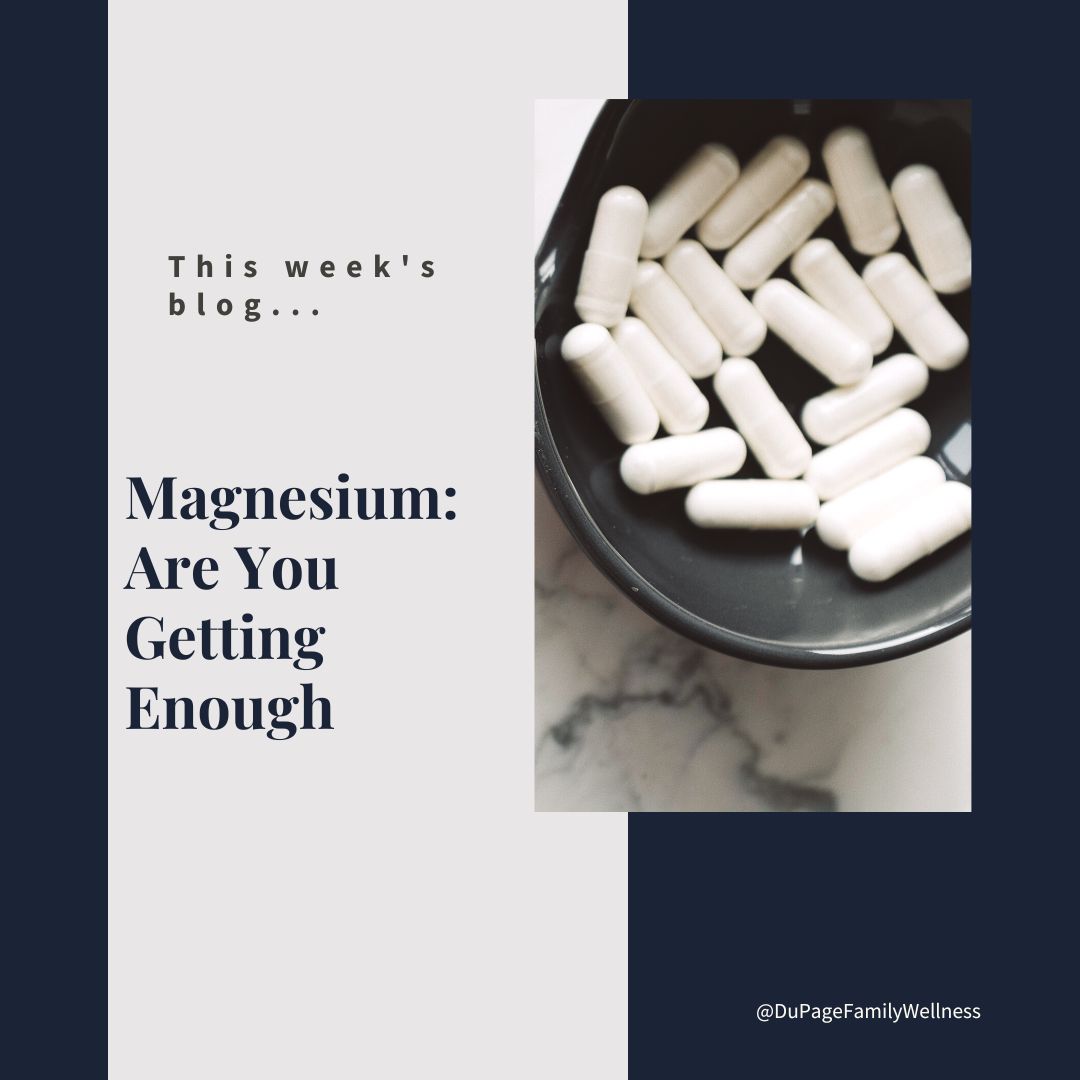 You may be familiar with vitamin D, zinc, and vitamin C, but what about magnesium? As important as magnesium is, it doesn't get the recognition it deserves. Magnesium is the fourth most abundant mineral in the body (1) and is needed for more than 300 biochemical reactions in the body (2).
You may be familiar with vitamin D, zinc, and vitamin C, but what about magnesium? As important as magnesium is, it doesn't get the recognition it deserves. Magnesium is the fourth most abundant mineral in the body (1) and is needed for more than 300 biochemical reactions in the body (2).
It does so much in the body and not having enough can lead to all sorts of problems. However, since our soil is so depleted our food is depleted too. Because it is difficult to get through our diet, it is important to be intentional about getting enough magnesium.
Let’s look at the important function it has in the body and learn the best way to see if you are getting enough.
Why Magnesium is Important
Magnesium is important for many systems and functions in your body including:
- nervous system regulation
- muscle function
- energy production
- blood glucose levels (3)
- blood pressure (4)
- inflammation (5)
- brain function - depression and anxiety (6, 7)
- sleep (8, 9)
- heart health
- protein formation
- immune system function
- heart health (10)
- creating and repairing DNA and RNA
It is also beneficial in treating preeclampsia, migraine, depression, coronary artery disease, and asthma (11).
Do You Have Enough
In spite of how important this mineral is 50% of U.S. adults get less than the recommended daily allowance (12). Many of us in the functional medicine world believe that people generally need much more than the RDA daily amount.
In fact, I find that many patients do well working up to taking 5x’s their body weight in mg of magnesium each day (so a 150 lb. person would work up to supplementing with 750 mg of magnesium). Remember that magnesium is a powerful mineral and building up too fast can cause unwanted side effects.
Since all minerals impact one another, we must be careful to balance them. We don’t want to increase one mineral at the expense of another. For this reason, we recommend that you work on your sodium and potassium levels as you begin to increase your magnesium.
How to Begin Supplementing
Generally, it is valuable to start with a topical magnesium spray or lotion. During this time, you can focus on increasing sodium and potassium through real food sources for at least 1-2 months; adrenal cocktails are great for this. After 1-2 months many people benefit from supplementing with 200-400 mg of magnesium.
My favorite supplements are a combination of magnesium glycinate and magnesium malate. Continue to slowly increase your supplementation up to 5x’s your body weight in milligrams. If you experience any unwanted symptoms, pull back or try changing which form of magnesium you are supplementing with. One of the side effects that can happen when people increase their magnesium too quickly is loose stools.
As you increase your magnesium, pay attention to your body. Most people find that the glycinate form is best taken at night because it helps them relax, while the malate form can be energizing. Each body is different, however, so see what works best for your body.
How to Test Your Magnesium Levels
It can be difficult to measure your magnesium level with a standard blood test because it is an intracellular mineral. In fact, 99% of it is inside the cell not in the blood serum (13).
My favorite test to understand your levels is the Hair Trace Minerals Analysis (HTMA). It looks at a variety of minerals through a simple non-invasive hair sample. It gives you an idea of how much magnesium your body has been using over the past three months. In times of stress your body will use more magnesium than usual.
It is also valuable to look at the magnesium levels in the red blood cells. This isn’t a perfect test, but it gives you more information than a test looking at the magnesium level in the serum alone.
If you are interested in looking at your mineral levels give me a call. We can get you a test and set up a time to review the results. As always, I enjoy walking with you on your journey to health!
Dr. Jamie

